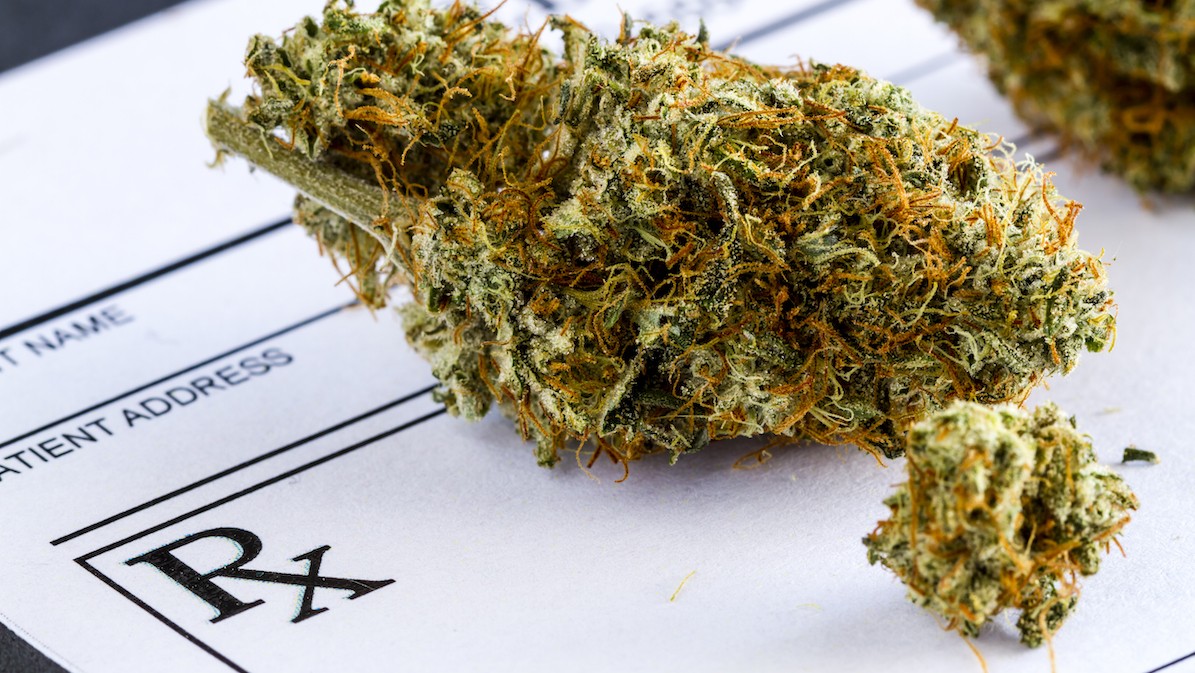
What is the Difference Between State Issued Card and Medical Marijuana Recommendation in California?
With the cannabis industry continually evolving, it’s easy for its laws to get confusing. In 1996, California passed prop 215, the Compassionate Use Act, as the first state to legalize medical marijuana. With California’s 2016 approval of prop 64, the California Marijuana Legalization Initiative, cannabis is officially and legally recreational in the golden state. So, what do you do with your old doctor’s recommendations? And do you need the state issued medical marijuana card you keep hearing about? Both are valid and legal way to get the greens. Here’s a breakdown of everything you need to know about state and medical marijuana cards and their differences.
California Medical Marijuana Identification Card
30 of the recreational states issue their own version of a medical marijuana card with each having their own requirements. These are called “State-Issued Cards,” or in California’s case a “California Medical Marijuana Identification Card” aka CA MMIC – and they aren’t common. According to the California Department of Public Health, in the fiscal year of 2017/2018, a total of 6,842 people were issued a CA MMIC in a state of more than 39 million residents. This could be because a CA MMIC is not required, and if you are 21 or over, you can simply walk into a dispensary with your driver’s license and purchase. However, there are advantages to acquiring a CA MMIC if you have a qualifying medical condition and plan to spend over $100 a month on cannabis.
Benefits
Legal Protection
Under state law Senate Bill 420, any person with a valid CA MMIC card has legal protection and the right to possess, grow, and transport marijuana within their state as long as they are compliant with SB420. Since these cards are state backed, they are stored in a state database, and can be verified by law enforcement. The card is not only protected by state law, but also by federal HIPAA privacy laws.
No Limits
Purchasing from only medical providers allows access to more dispensaries, and also assures that you receive quality products with more potency, which ultimately means more effective treatment of your medical condition. According to the California Department of Public Health, CA MMIC can:
- Can carry as much as medically required.
- Can grow more than 6 plants.
- Can buy up to 8 oz of cannabis, 12 plants per day, concentrated forms of cannabis, that are double the strength of recreational use. (Health and Safety Code 11362.77(a)
- The limit on THC in topicals is 2,000 milligrams per package.
- The limit for THC in edible products is 100 milligrams per package, for medical and recreational customers alike.
- The limit for THC in edible products is 100 milligrams per product, for medical and recreational customers alike.
Tax Exempt
According to the State Board of Equalization, with a valid CA MMIC, patients do not have to pay the 7.5% state sales tax when purchasing cannabis in California
Age Leniency
Patients with a valid CA MMIC can purchase cannabis at the age of 18 versus being 21 for recreational use.
Disadvantages
Cost to Obtain
The CA MMIC has a $100 application fee. Not to mention the additional time and costs you might come to when obtaining the necessary information to obtain a CA MMIC, like a doctor’s recommendation.
In Order to Acquire a CA MMIC:
- Start by making an appointment with your local county health office
- Receive a doctor’s recommendation, aka a “Written Documentation of Patient’s Medical Records” form from your physician for medical marijuana. It is the full size sheet with the doctor’s wet signature.
- Turn in completed and accurate application.
- Provide proof of identity, such as a valid driver’s license or identification card or other valid government-issued photo ID card.
- Provide proof residency in County, such as a current and valid California motor vehicle registration, rent or mortgage agreement, or utility bill. This proof must have patient’s name bearing current physical address within the county.
- Pay the MMIC application fee of $100 ($50 for Medi-Cal).
- Your photo will be taken at your scheduled appointment.
- Once completed, your card will be mailed to your home address. The process time is about 35 days and you must renew your CA MMIC annually.
Note: CA MMIC is not applicable for those on felony probation. To learn more about the CA MMIC, visit the state health department: www.CDPH.ca.gov
Medical Marijuana Recommendation
In California, a doctor can recommend cannabis for medical purposes for adults 18 years or older. To help clarify the Medical Board of California released guidelines for the recommendation. The doctor’s recommendation, also known as a “Medical Marijuana Recommendation Card” (MMRC), has been around since 1996 through Prop 215 and is far more common than the state issued MMIC. The misconception is that it’s not actually a card, or at least a card is not required in California. All you need is a doctor’s recommendation letter. There is also not a consistent format for this document outlined in the laws so based on the dispensary you visit, you might be required to bring in an official piece of paper with an embossed mark, or they might take a digital document. Also to note, since recreational cannabis went into effect many 21+ dispensaries will only process a CA MMIC because there is little difference in the transaction at the register except for a minor tax exemption. According to the Marijuana Policy Project, it is estimated that 1.5 million Californians have a doctor’s recommendation, which comes on a standard sheet of paper. Card optional and not required. The MMRC is also one step to obtaining the CA MMIC, without all of the state issued benefits.
Benefits
Lower Cost
Most doctors recommendations can cost anywhere from $30-$100 for an evaluation, but generally the cost is less than the CA MMIC. For example, NuggMD is one of California’s leading telemedicine platform where a doctor’s recommendation is $39.
No Waiting For 18-20 Age Users
A medical marijuana recommendation allows patients under 21 years of age to obtain cannabis for medical purposes. If you are in the dead zone for recreational (18 to 20 years) and have a medical reason for use, you can get it. And, are not required to go through the additional step of a government issued card. Just be sure to visit a “medical” cannabis dispensary that honors MMRC.
Disadvantages
Not Verifiable
Since these cards are not state backed and not verifiable in a database, it’s possible that if a patient is carrying more than the recreational amount, law enforcement can detain or even arrest the patient until the recommendation is verified. Bruce Margolin, a leading marijuana attorney and director of the L.A. chapter of the National Organization for the Reform of Marijuana Laws, shared that a doctor’s recommendation can still get you arrested. California is known for not going after medical cannabis users and tends to be lenient. Even ignoring federal lawmakers at times in how marijuana is policed in the state.
Non-Tax Exempt
Dispensaries will charge a 15% excise tax on all cannabis products, but MMRC holders will also have to pay the additional 7.5% state sales tax and possible local taxes.
In order to acquire a MMRC:
- Need ID to prove California residency.
- Prospective patients must have eligible conditions for a recommendation.
- Pay no more than $30-65.
While there are similarities between each card, it’s important to note that the state issued card is the only way to have 100% legal protection while possessing, transporting, or growing cannabis over the recreational amount in California. For those with qualifying medical conditions, the extra steps to obtain the CA MMIC is worth the peace of mind. Regardless of the kind of card you choose to have, you’ll want to visit a state-licensed dispensary to purchase cannabis. The California Bureau of Cannabis Control, the agency that regulates marijuana, has a list of licensed dispensaries to visit here.
DISCLAIMER: Cannabiz Digital does not sell cannabis. This publication covers business topics surrounding legal cannabis in California and the United States. It does not provide legal or medical advice. Consult your physician, lawyer, and local laws regarding cannabis. We do our best to provide current information at the time of publishing with no guarantees to accuracy. We understand this industry changes quickly and welcome your feedback. [Send Feedback]


